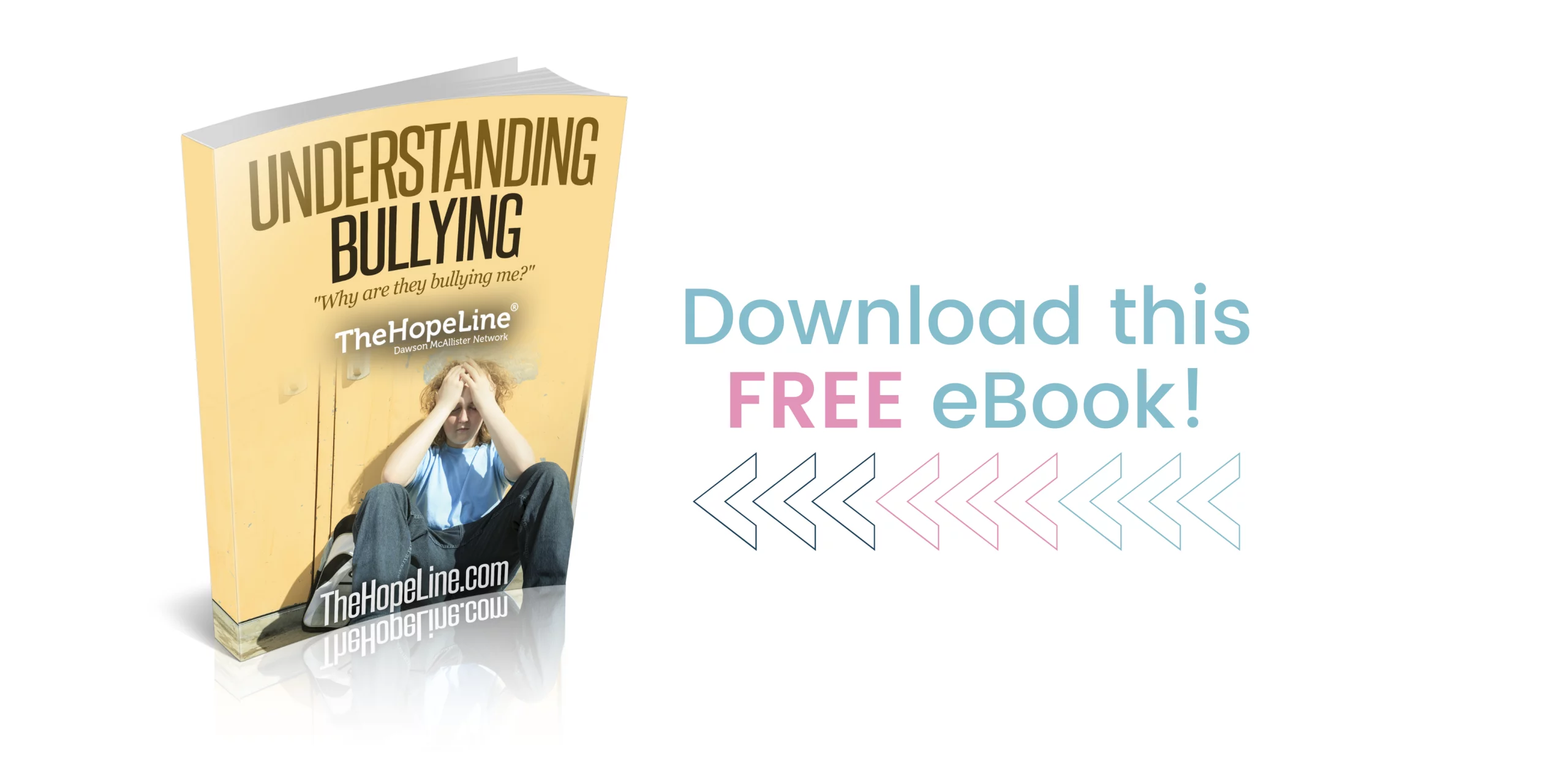What should you do when you see bullying going on? Should you take sides? Should you defend the victim?
Our friend, Brooks Gibbs, is here to give us some practical advice that answers these questions. Gibbs is a youth crisis counselor, bullying expert, youth speaker, author of Love is Greater Than Hate, and friend of TheHopeLine. He offers a unique and important perspective on what you should do when you see bullying occurring, and how you can be a part of bullying intervention.
Bullying Intervention: TheHopeLine.com - YouTube
How should I Intervene if I see Bullying Happening?
A lot of people would say stand up for the victim and stand up against the bully. But I see a problem with that approach. The problem I have is that you don’t really know who is the victim and who is the bully all the time. The lines are not always that clean. Social, interpersonal, relational issues are super complicated. You are not sure who threw the first word or who offended who first. In fact, when I work with bullies often times they say, "I’m not a bully I’m a victim." Most bullies feel like victims and that’s why they are mean.
Don't Be Too Quick to Take Sides
So when you see bullying occur between two people or a group of people understand that you can’t just take sides with one or the other. You can’t have a judgmental attitude or mindset that says this is an innocent victim and this is a guilty bully. You just have to realize that these are two people who have offended each other and you are not sure where it started.
Work One-on-One
So the best thing you can do is work one-on-one with the person you have a relationship with. So after the conflict is over. After you see the bullying scenario play out, when they go their separate ways, start talking with the person you have the relationship with. Say, "Hey man, what did they do to offend you?” Get the back story. Not because you are trying to meddle in their business, but in the spirit of trying to help them discover a way to solve the social problem. And let me tell you how to encourage them to solve it.
Be a Messenger of Forgiveness
You tell them that no matter what their hater has done, no matter how mean the person was, no matter what the offense was...Forgive. As long as there wasn’t a crime being committed, let it slide. If the offense hurt their feelings, that is in their capacity to forgive. Forgiveness is releasing the enemy from the responsibility to fix the problem. And in return they are released from their hatred...released from their anger.
That’s the quickest way to bring peace and harmony in the midst of people in conflict. Always be a person that promotes forgiveness. You can still have a conversation saying, “What is this all about? Why are you guys in conflict? Why are you guys fighting?" But at the end of your conversation you must promote forgiveness. If you are a messenger of forgiveness, then ultimately you are a messenger of peace. Be a peacemaker.
Victims of bullying, and the bullies themselves, are at a higher risk of depression. Click to learn how depression is linked to bullying.




bullying is a great disease of our nation